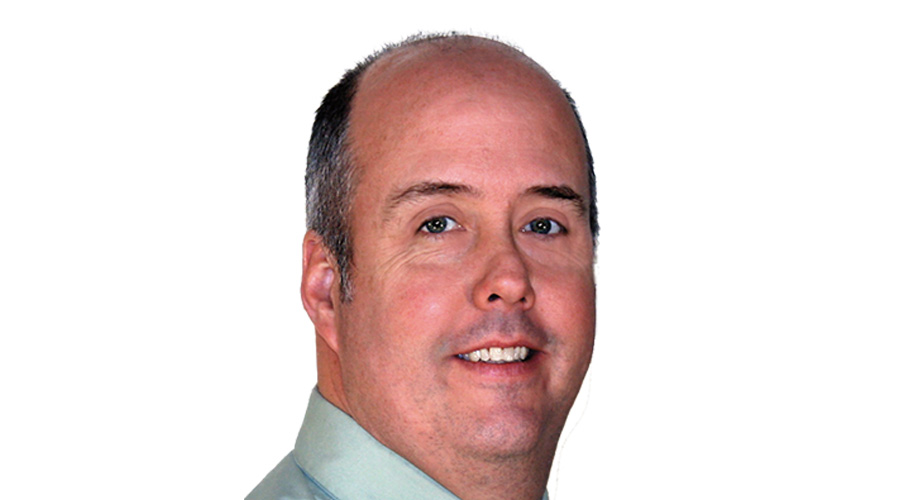Customer Service Roundtable: Managers Discuss Savvy Practices
By Dave Lubach, Associate Editor

Steven H. Crenshaw,
Director of Facilities
Management,
Springhill Medical Center,
Mobile, Ala.
|

Ken Roey,
Executive Director of
Facilities Planning and
Management and
Acting Chief Operating Officer,
Howard County Public School System,
Ellicott City, Md.
|

Tony Nettle,
Senior Operations Manager,
Duke Realty,
Alexandria, Va.
|
Customer service is often an overlooked aspect of the job for front-line technicians, supervisors and managers in maintenance and engineering departments. While making sure institutional and commercial facilities operate in a safe and efficient manner is always a manager's top priority, providing high-quality customer service can mean a great deal to a department's reputation and the organization's bottom line.
Where does customer service rank on the list of your department's priorities?
CRENSHAW: It is the highest priority we have. Obviously, we have a lot of priorities that rank right up there with customer service, such as the provision of essential services and the maintenance and construction of the building. But customer service is a topic we discuss at least on a weekly basis in shop meetings.
ROEY: It ranks at the top. Five years ago, we talked in terms of schools, in terms of other departments, and today we talk about customers. It's been a gradual shift over time in viewing our schools and our other colleagues as customers instead of just somebody else who needs a service.
NETTLE: At the very top. We have a program called "For Complete Customer Satisfaction," so it's the absolute most important thing for tenant retention. (The program) ensures that the leasing department, operations, property management department and construction department, along with supporting groups, take care of the tenant throughout all stages of construction to tenant occupancy and then from occupancy to move out in a flawless manner. It creates accountability and provides the necessary oversight for the process to be successful. This allows our tenants to be treated in a first-rate manner with all departments.
How much time do you devote to training employees on how to deal with customers?
ROEY: We probably could spend more time, but we have spent a lot of time in the last couple of years through workshops and other training processes talking about customers and looking at it from the customer's perspective. I've personally led training with a number of groups around the department. We have some supervisor training, where we're taking aspiring leaders and trying to grow them into the next set of leaders, and during those sessions we talk about it. We try to insert it wherever we do some sort of formal training opportunity. More and more, it's becoming the focus and not just another subject of the training.
NETTLE: We have training programs for all the employees, and we have several different ones based on what their interaction is. It's reinforced on a bi-weekly basis to all of the tech staff and in tech meetings that we have. Then, from an organizational level, we hold monthly meetings. It's hard to quantify because we have specific online training that we do, and we have meetings that we do. And based on individual growth, we then provide outside training, as well. It's pretty extensive.
How does your department deal with complaints?
CRENSHAW: We'd like to think (we respond) promptly and effectively. One of the things we do is, we've created a program where all the departmental managers, from nurses and managers, once a month, are assigned a unit where we actually sit down and talk to the patient. We talk about everything from the admissions process to things like how the nurses and doctors communicate to them. Hopefully, that stops complaints in real time. Each of the managers that make these rounds can do whatever they have to do to resolve the complaint. My department deals with them in such a way that if a manager goes into a patient's room and says, "My air conditioner has been noisy since I got here, I just haven't reported it," we're obligated before the close of business that day to not only repair it, but the manager goes and visits that patient, as well, to make sure they are fully satisfied.
ROEY: We're learning about that. We do a lot of surveys. I personally survey the principals of the schools and get feedback from them one-on-one, both in general outcomes in person about specific people and what kinds of services they deliver. We have other types of surveys and reports we get from schools and other places. What we try to do is not personalize the negative feedback. That's feedback that would only go to the director of school facilities. It would be held at that level. We would want to correct the problem, but we don't want to personalize it so that people are afraid to share honest feedback. On the positive side, we want to celebrate the good things. So if somebody tells me, "Joe did a marvelous job," I'll publicize that as widely as I can, and in some cases, if it's something I think is quite noteworthy, I'll get to that person's supervisor directly, rather than an e-mail note. Probably 10 times more powerfully than negative feedback, positive feedback can be a real great example, a place to pull your people forward, (rather) than tearing them down.
NETTLE: We do a thorough investigation. We first look and see what the initial contact was to us — whether, in case one of our tenants, did they send in the request through the work-order system, or did they verbally communicate it to someone? The communication aspect is the first trail that we look at. Then we look at response time. We look at what was required to satisfy that response. We look at everything. We look at the tenant itself. We look at all those varying aspects and see where the breakdown was. Then we get the team together that responds for that particular property, then put in measures to ensure that a similar situation doesn't happen again, and we provide re-training in any areas where it's necessitated to make sure that we provide the best service the next time around.
When you do receive feedback how do you pass that information along to staff?
CRENSHAW: I'll take it in two examples. One, specifically, either positive or negative, that results in regards to a specific individual's actions, we will address that with the individual. There's an old saying, "Praise in public, criticize in private." If a person fails to follow up and fails to do the proper job, that can result in an oral warning right up to disciplinary action. If it's positive, then we may hold that person out as a great example and put a letter in their file. (For department units) in a shop meeting, we have results, and they are posted on the wall. So if a specific unit is good or bad, we identify that in a public forum, and nobody wants to be bad. That's been one of the most successful things, to create peer competition or peer pressure to excel in their ratings.
ROEY: I will write up a formal visit report, and if it's coming to me, it will show up in the formal visit report, and it will be tracked by other means until it's resolved. If it goes to a lower department, then I'll expect that they may not have as formal a process as I have, but the expectation is that they'll get back to the customer with some type of resolution. I think it's very important that people know that you're acting on the feedback you're getting, and that it just didn't go into some inbox someplace, never to be heard from again.
NETTLE: Depending on how severe the incident was, whether it was positive or negative, we'll wait until we have a staff meeting. If it was more critically important, we will call a meeting to address it. We communicate it on an individual basis, then break it out to the group as a whole, regardless of whether it's positive or negative, to ensure that they have an understanding of what they did right and what they did wrong.
Describe a noteworthy customer service
example, either good or bad, that you have experienced.
ROEY: We had a custodian who was a day building supervisor at an elementary school, and he was named supervisor of the year for the school system. When they had his ceremony to give him his certificate, the superintendent came to give it to him and they did it in the gymnasium of the school. Every student and staff member of the school was in there, and when they brought him in there was wild cheering and clapping. They made all these cards, and there was this outpouring of joy about what a great person this supervisor was. It was very obvious he had created a personal relationship with his customers. It wasn't as the supervisor, it was as the person, and how they related to him, and how he related to the students and the staff. Creating that personal bond, to me is the key to creating a great customer relationship. On the flipside, many years ago, I was in the Navy at the time, and had a commanding officer's ship call me when we was supposed to be under way, and tell me the services I had provided from a couple of different shops had not allowed him to get under way. The equipment did not work. In the Navy, the absolute worst thing that can happen is to miss a commitment and not get under way on time. What I really felt bad about was that I didn't know that until he called me. If you don't have that relationship that at any time, you can't pick up that phone and talk to somebody as a friend or a person versus that's some anonymous provider, you're not going to very successful. It's all about that personal relationship and bond you create with your customers.
What is the most important lesson you have learned from your customer-service
experiences?
CRENSHAW: We have a philosophy in our hospital, as well as our department, that if it's good for the patient and it's good for the hospital, then you can't make the wrong decision. The most important lesson that I have learned and try to teach is that we want to treat every patient as if they were a family member. If our staff can provide the service necessary to reach the quality level that they would want for their own family, then we're going to have good customer service. What's the old saying, "If they have a good experience, they'll tell three people, but if it's a bad experience they'll tell 12?" We want to avoid those bad experiences, and we want to do everything necessary from a preventive standpoint to head those off.
ROEY: No news is terrible news. Because we're so busy, because we don't like people yelling at us, we tend to shy away from reaching out and over time have just said, "They'll let us know if there's a problem." That's just the farthest thing from the truth. The more that you can reach out and pull the information out of the customers and find out what's going on, both in terms of the delivery of your service and any issues they may have, even if it has nothing to do with the original work you did, the better off you are in developing that customer relationship. We really have to train ourselves to listen to feedback and realize that not everything goes right. If you want to get better, you have to understand that negative feedback and get better from it.
NETTLE: Communication. Everything usually boils down to communication, and having a proper understanding of the tenant's or the customer's needs, and making sure that the proper level of communication is established between you and the customer.
Related Topics:














